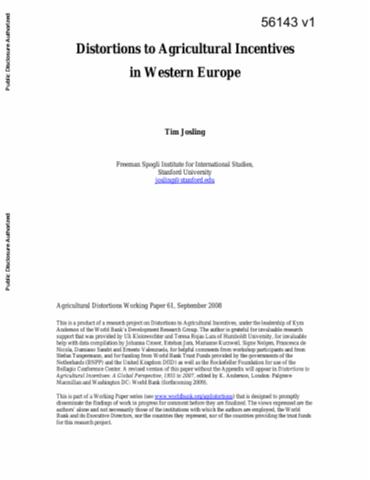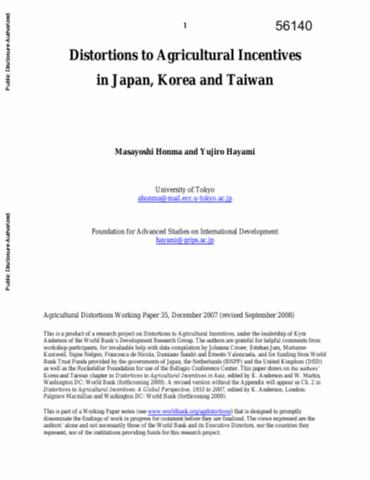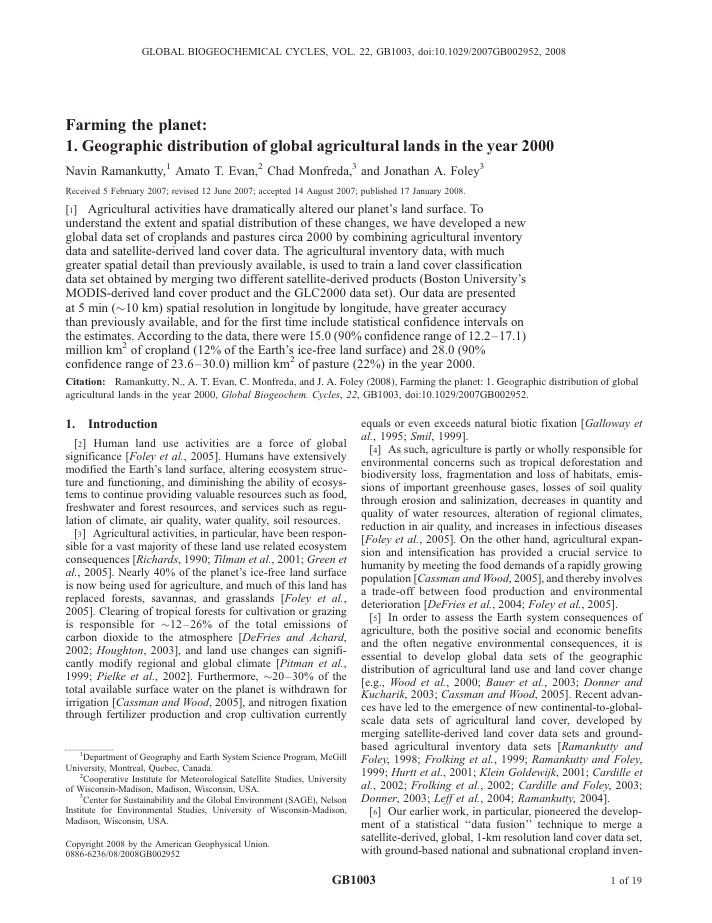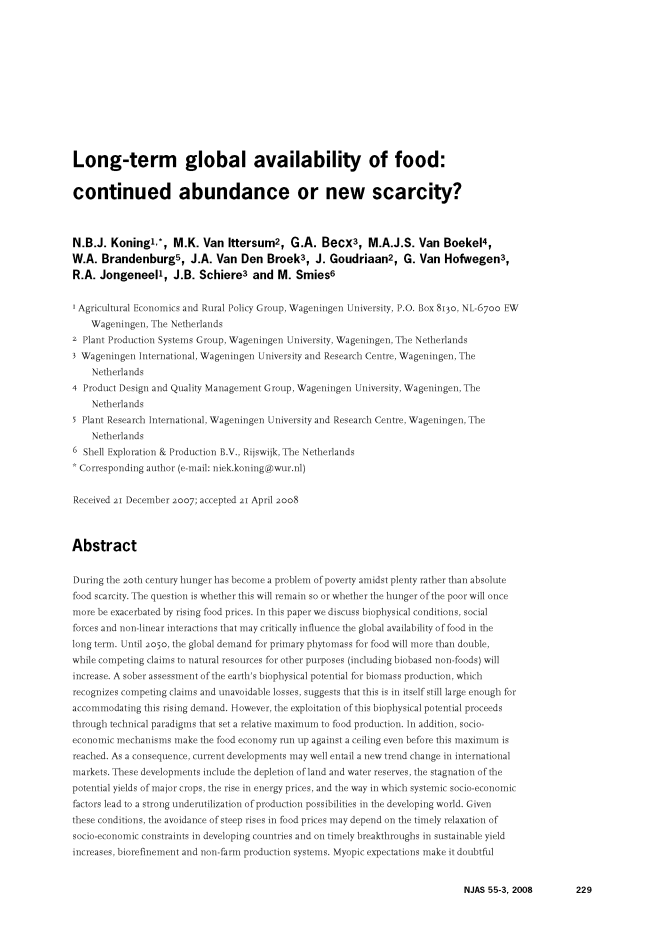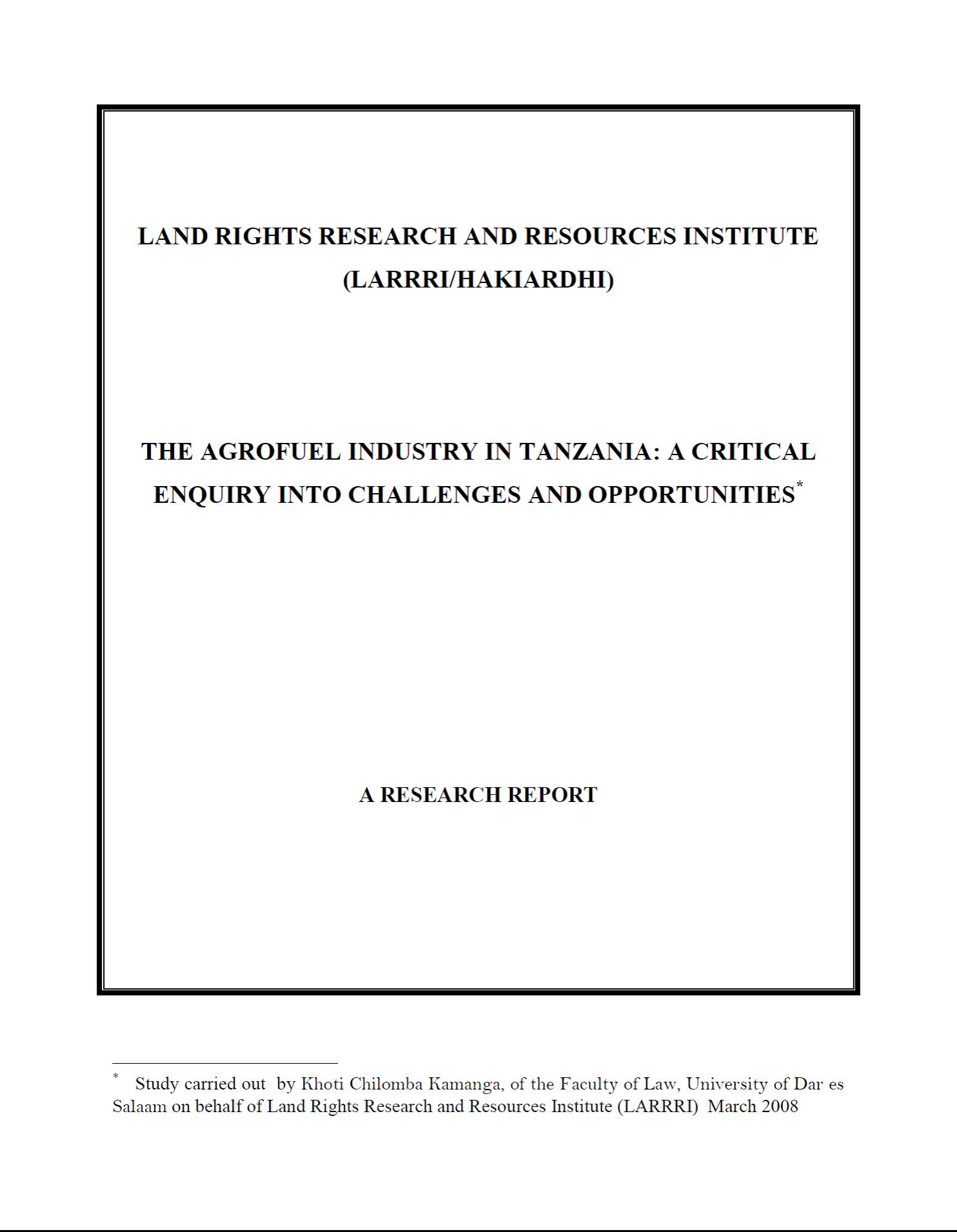The State of Food and Agriculture
More than at any time in the past three decades, the world’s attention is focused this year on food and agriculture. A variety of factors have combined to raise food prices to the highest levels since the 1970 (in real terms), with serious implications for food security among poor populations around the world.


